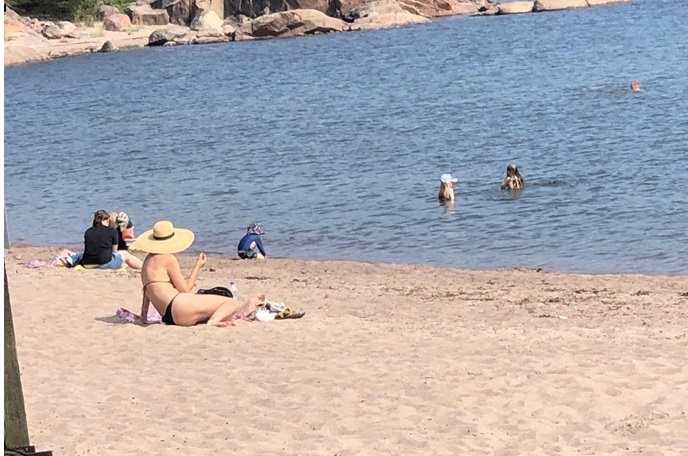Finland sees warmer July with many hot days in Lapland
Published : 06 Aug 2024, 12:28
July was warmer than usual throughout the country, according to the Finnish Meteorological Institute.
Depending on the observation station, Northern and Central Lapland was unusually or even exceptionally warm.
The average monthly temperature in the northern part of the country was between 15.5 degrees Celsius and 18 degrees Celsius, while in other parts of the country the range was 17 to 19.5 degrees Celsius.
The deviation of the average temperature was largely 0.8...1.5 degrees, while in the northern part of the country the deviation was 2...3.4 degrees.
The number of hot days when the daily temperature exceeds 25 degrees Celsius, was somewhere in Finland 20 days, which is four days above the July average.
The greatest number of hot days – a total of 14 – was measured in Kevo, Utsjoki.
There have been about 5–12 hot days in the northern part of the country and in the south-east corner, 1–7 elsewhere.
In north-east Lapland, the number of hot days has been unusually or exceptionally high.
The highest temperature of the month was 30.4 degrees Celsius, which was measured at Hiekkapakka, in Lappeenranta, on 26 July.
The lowest temperature in July, 2.4 degrees Celsius, was measured at the Saariselkä Tourist Centre in Inari, on 4th of the month and in Naruska in Salla, on 14th of the month.
This is the lowest July temperature recorded in the daily statistics since they were digitised in 1959.
The rainfall in July was higher than usual in the central and northern parts of the country; the first half of the month was even unusually or exceptionally rainy in the northern part of the country.
In the southern part of the country, there was no significant deviation from the monthly average precipitation. There have been plenty of local differences in precipitation levels due to rain showers.
The highest precipitation of the month was 157.4 mm, at the Vaasa Klemettilä observation station. Fagerholm in Parainen saw the least rain, 37.1 millimetres.
The greatest amount of precipitation observed in a single day was 44.2 mm, measured at Ranua Airport, on the 28th.
The number of sunshine hours almost equal in the south and north, but in the north higher than usual
On the southern coast of the country and in the southwest archipelago, July saw fewer hours of sunshine than usual.
Throughout the country, the sunshine hours have remained below the observation stations’ averages, with the exception of Kevo in Utsjoki and Tähtelä in Sodankylä.
In the entire country, there have been approximately 220–280 hours of sunshine per observation station, but only in the northern part of the country, such figures are statistically higher than the average.
Less than 38,000 cloud-to-ground lightings were detected in July. This is less than the average for the period 1991–2020, which is 54,300 cloud-to-ground lightings.


